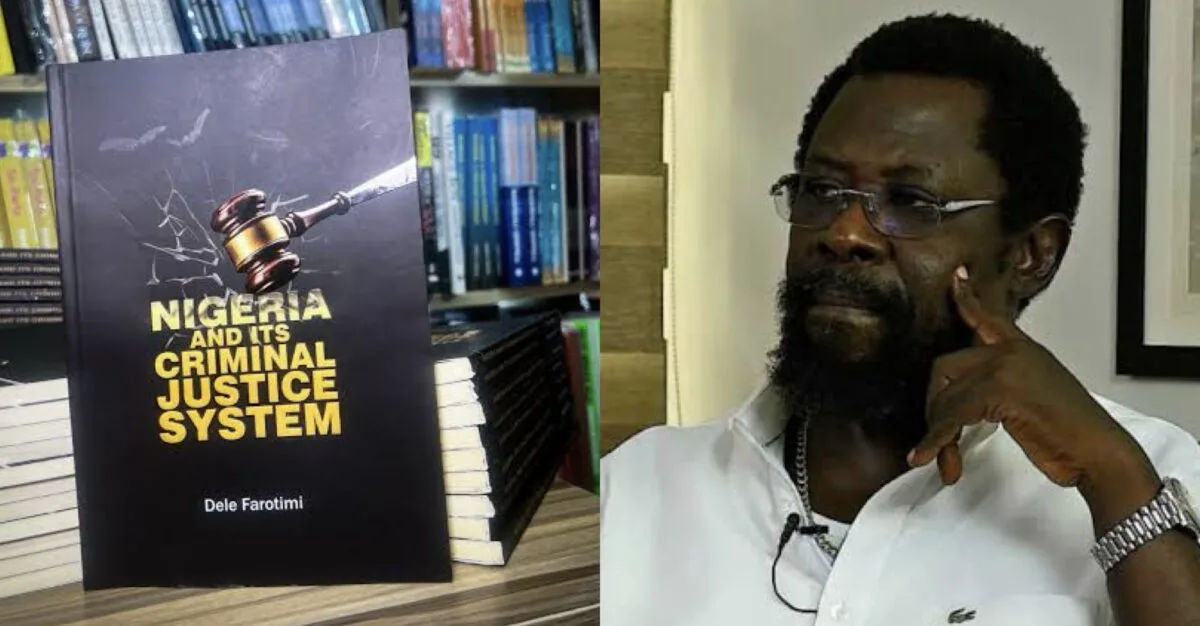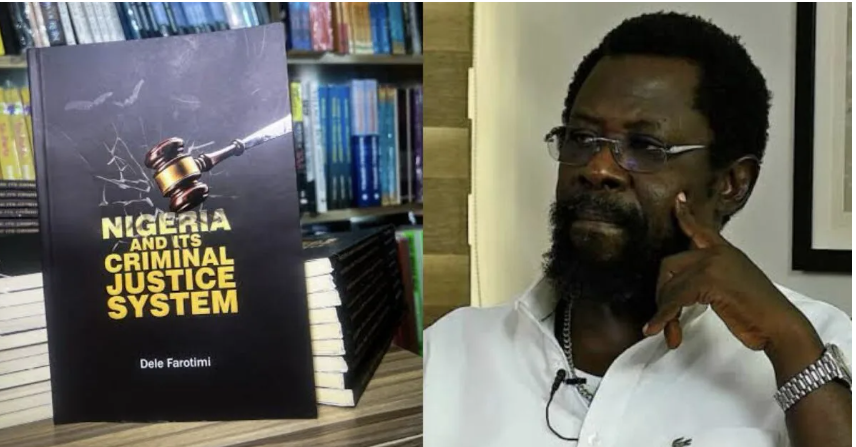
The Book delves into the intricate intersection of law, power, and justice in Nigeria. The book reflects Farotimi’s passionate critique of the country’s legal framework, exposing what he perceives as a deeply flawed system where influence and wealth often overshadow fairness and due process. His narrative is both a personal journey and a broader commentary on the struggles of the common man against a seemingly impenetrable judicial structure.
Farotimi’s approach is unapologetically direct, rooted in personal experiences and legal confrontations that shaped his perspective. Central to his critique is the persistent issue of land disputes and financial impropriety, which he argues are manipulated by powerful figures within the legal system. His specific allegations against respected legal icons like Afe Babalola elevate his claims from systemic critique to pointed accusations, making his narrative not just a social commentary but a legal confrontation played out in the public domain.
However, his reliance on emotionally charged assertions rather than concrete, court-admissible evidence reveals a crucial tension between personal belief and legal standards. Twice, the courts dismissed his claims, underscoring a fundamental principle of justice: the burden of proof rests on the accuser, and convictions cannot be based on passionate storytelling alone. Farotimi’s inability to meet this standard highlights the limits of advocacy driven by personal conviction when it collides with the rigid demands of the law.
The ethical implications of his disclosures also raise serious questions. His decision to publish sensitive legal details involving clients and defendants, possibly without consent, puts him at risk of breaching attorney-client confidentiality—a cornerstone of legal ethics. Legal advocacy must respect professional boundaries, even when motivated by a desire for systemic reform. By naming individuals and disclosing case specifics, Farotimi walks a fine line between exposing alleged wrongdoing and risking legal consequences for defamation and ethical misconduct.
What emerges from Farotimi’s narrative is a clash between perceived moral truth and legal reality. His story is compelling, rooted in personal belief and a fierce sense of justice, yet the courts operate on evidence, not emotion. This divide between what is believed to be true and what can be proven in a legal setting defines the crux of his conflict with Nigeria’s criminal justice system. His failure to provide sufficient proof, despite his conviction, reflects the legal system’s demand for facts over feelings.
The book also serves as a reminder of the risks involved in using public platforms to confront power. Allegations of corruption, no matter how passionately argued, require irrefutable evidence when prominent names are involved. Freedom of expression must be exercised responsibly, with an understanding of legal implications, especially in a system where reputations are fiercely protected by law.
Farotimi’s work ultimately reflects the age-old struggle between power, money, and the pursuit of justice. His persistent advocacy, despite legal setbacks, illustrates an unwavering belief in speaking truth to power, even when the law does not rule in his favor. Yet, his experience underscores a critical lesson: the fight for justice must be rooted not only in passion but also in legal precision, ethical integrity, and a clear understanding of the burden of proof.
In the end, courts remain the ultimate arbiters of disputes, where logic, evidence, and legal reasoning prevail over emotion and personal conviction. Farotimi’s journey through Nigeria’s complex legal landscape serves as both a compelling narrative and a cautionary tale—a call for meaningful reform tempered by respect for legal processes. In the battle between land, money, and justice, the final word belongs to the law.
At its core, Farotimi’s work is a powerful reminder of the complexities involved in challenging entrenched systems of power. His refusal to retreat, even after legal defeat, reflects a deep commitment to his cause. Yet, his experience underscores that moral outrage, no matter how justified, must be coupled with legal precision, evidentiary backing, and ethical clarity to effect real change.
In the end, the struggle between land, money, and power is as old as the law itself. Courts remain the final arbiters where facts are weighed, and justice is rendered—not based on emotion or public sentiment, but on superior logic supported by law. Dele Farotimi’s journey through Nigeria’s legal labyrinth is a cautionary tale about advocacy, truth, and the limits of personal conviction within a system where the last word belongs to the court. I rest my case.
By : Jide Adesina
1st Afrika
All rights reserved
December, 2024


